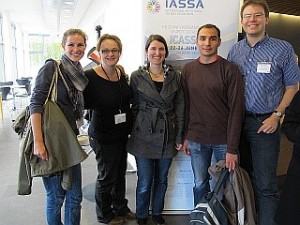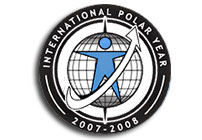Foundation of the Austrian Polar Research Institute: Presentation of the Institute
April 8th, 2013; University of Vienna
The Austrian Polar Research Institute (APRI) is a research consortium that promotes and coordinates research and education in the area of polar sciences at the participating organisations. The APRI is interdisciplinary and involves about 50 scientists in 14 research groups. There is a public presentation of the institute on April 8th, at the University of Vienna’s main public lecture hall.
Our AAS members Gertrude Eilmsteiner-Saxinger and Peter Schweitzer are leading a research group in the section „social and cultural systems“. Former focuses on the extractive industry, mobility of labour force and the interaction with the local community. Latter does research on social aspects of climate change and globalization especially in Siberia and Alaska. Elena Nuykina and Elisabeth Öfner, AAS members as well are part of a research group.




 Photo (from left to right): Silvije Habulinec, Markus Hirnsperger, Alexander Köhler (standing), Stefan Bauer, Stefan Donecker, Aline Ehrenfried, Stefan Pohlmann (standing), Elena Aleshkevich, Annett Bartsch
Photo (from left to right): Silvije Habulinec, Markus Hirnsperger, Alexander Köhler (standing), Stefan Bauer, Stefan Donecker, Aline Ehrenfried, Stefan Pohlmann (standing), Elena Aleshkevich, Annett Bartsch  The International Council for Science (ICSU) and the World Meteorological Organisation (WMO) have devoted the period from 1st March 2007 until 1st March 2009 to the polar regions of the world. Arctic and Antarctic are in focus of a comprehensive scientific programme, which even stretches over two years this time – to give scientists the opportunity to conduct research in all seasons of the year on the northern and southern hemisphere.
The International Council for Science (ICSU) and the World Meteorological Organisation (WMO) have devoted the period from 1st March 2007 until 1st March 2009 to the polar regions of the world. Arctic and Antarctic are in focus of a comprehensive scientific programme, which even stretches over two years this time – to give scientists the opportunity to conduct research in all seasons of the year on the northern and southern hemisphere.